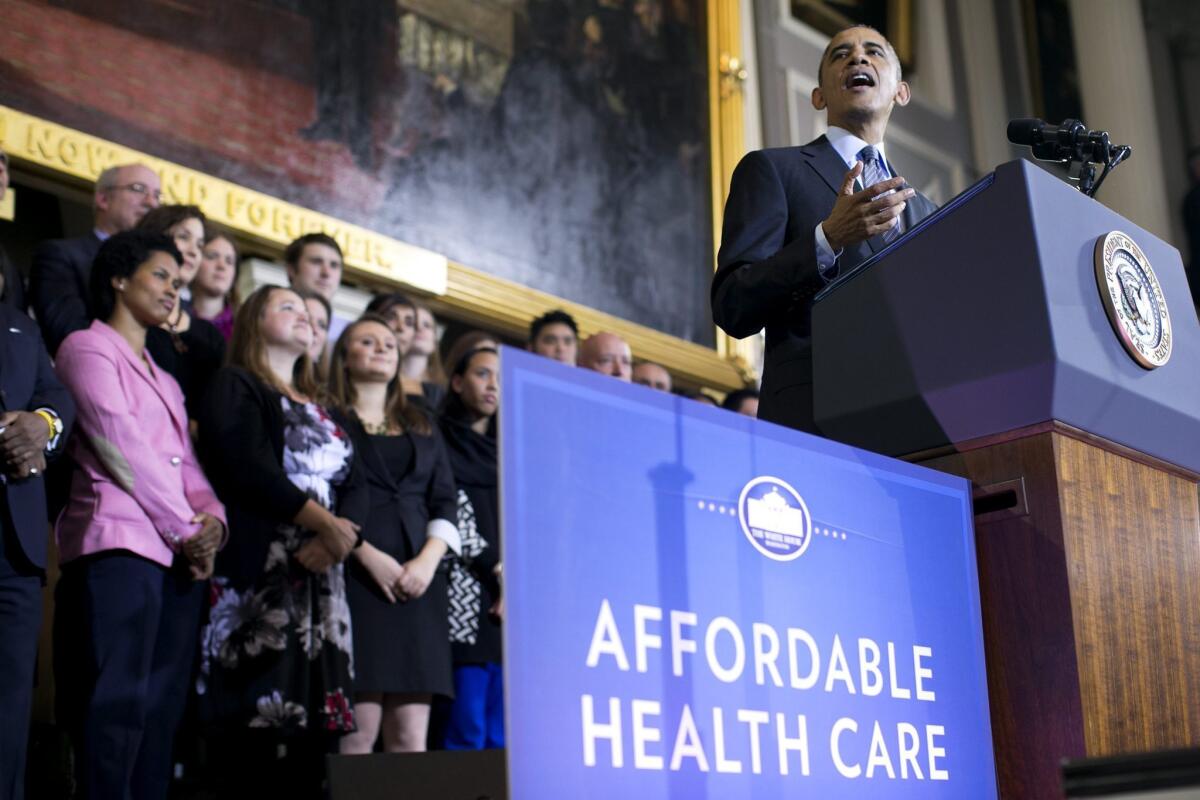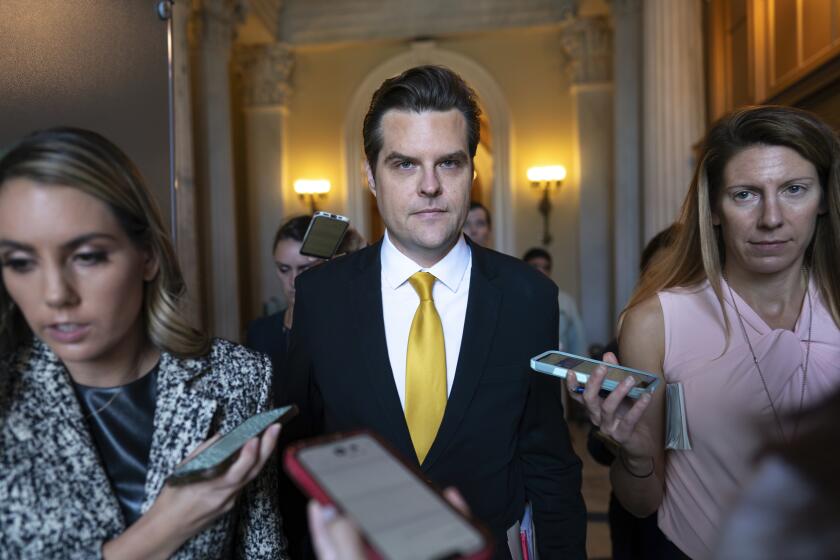A plague on both your parties

Only two weeks ago, President Obama looked like a man on the rise. He and his party had successfully stared down Republicans in a 16-day government shutdown. Voters were angrier at the GOP than any time since, well, the last government shutdown. A confident-looking Obama declared it was time to get the country back on track with quick action on a budget agreement, immigration reform and a bipartisan farm bill.
âOne of the things that I hope all of us have learned these past few weeks is that it turns out smart, effective government is important,â he said.
How long ago that moment seems now.
Since then, almost nothing has gone right for the president. The messy rollout of his biggest achievement, the Affordable Care Act, has careened from a simple case of website glitches to a nightmare of consumer complaints. Some of the countryâs closest allies have expressed outrage at reports that the NSA was tapping the cellphones of their leaders, including German Chancellor Angela Merkel. And last week, the NBC-Wall Street Journal poll reported that Obamaâs approval rating had sunk to 42%, an all-time low for him in that survey.
But the president wasnât alone in losing ground. That same poll found that the Republican Party has also hit an all-time low, with only 22% of voters saying they had a positive opinion of the GOP. Most dramatically, 63% of voters said they wanted to fire their current member of Congress, while only 29% said their representative deserved reelection.
Weâve finally found an issue on which almost all Americans, right and left, agree: We hate having a federal government that creates problems instead of solving them. And the shutdown, the Obamacare rollout and the phone-tapping scandal are all government-created problems.
Members of Congress on both sides insist that they learned their lesson from the shutdown and wonât stage a repeat performance. But the public isnât so sure. Polling shows that about half of Americans think Congress is likely to do it again, and that fear is dragging consumer confidence down, making the economy more sluggish than it needs to be.
While Republicans get most of the blame for the government shutdown, voters tend to blame the president â any president â when the economy is bad.
In addition, voters generally believe itâs the presidentâs job to make the federal government run well, and with the healthcare rollout and the NSA issues following so closely on the heels of the shutdown, the government isnât exactly humming. âWhen the system isnât working, no one comes out well,â noted veteran pollster Andrew Kohut of the Pew Research Center.
In Washington, of course, the big question is what effect the publicâs sour mood will have on next yearâs congressional election, in which Republicans hope to take over the Senate and Democrats hope to take over the House of Representatives.
Democratic pollster Stan Greenberg surveyed 80 âbattleground districtsâ that could change hands and found that Republicans look more vulnerable than before. In some Republican districts, he told me, House Speaker John A. Boehner (R-Ohio) is now even more unpopular than former Speaker Nancy Pelosi (D-San Francisco). But even Greenberg warned that few voters have actually decided to vote for the other party.
And that finding that almost two-thirds of voters want to fire their member of Congress? Donât count on it. âIf you speak to someone at an emotional moment, you often get an emotional response,â Kohut said. âBy election day, voters arenât likely to behave as dramatically as that.â
Even if voters stay mad through the 2014 election, itâs unlikely that will change the balance in the House. To gain the 17 seats theyâd need for a majority, Democrats would need to win almost every close race in the country.
As for Obama, heâs hoping that once the Obamacare website is running smoothly â which his staff says will happen by the end of November â he can move on to other issues: immigration reform, infrastructure spending and job creation.
But second terms are often rocky. For every Bill Clinton, who managed to push past the rough spots, thereâs a George W. Bush, whose second term lurched from one crisis to another.
So far, Obamaâs second term hasnât given his supporters much cause for optimism. Like Bush, Obama came out of reelection declaring that voters had given him a mandate, only to discover that votersâ patience with a president can wear thin astonishingly fast. Whether he regains public confidence now depends largely on making his healthcare program work â its insurance plans, not just its website. For the president, it comes down to one thing: Obamacare.
Twitter: @DoyleMcManus
More to Read
A cure for the common opinion
Get thought-provoking perspectives with our weekly newsletter.
You may occasionally receive promotional content from the Los Angeles Times.











